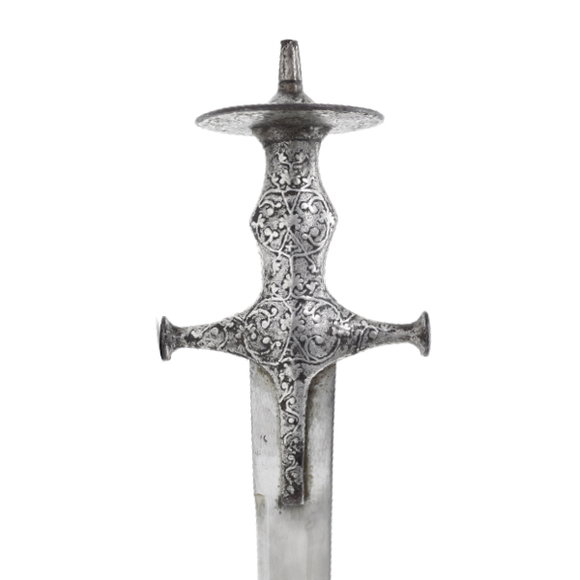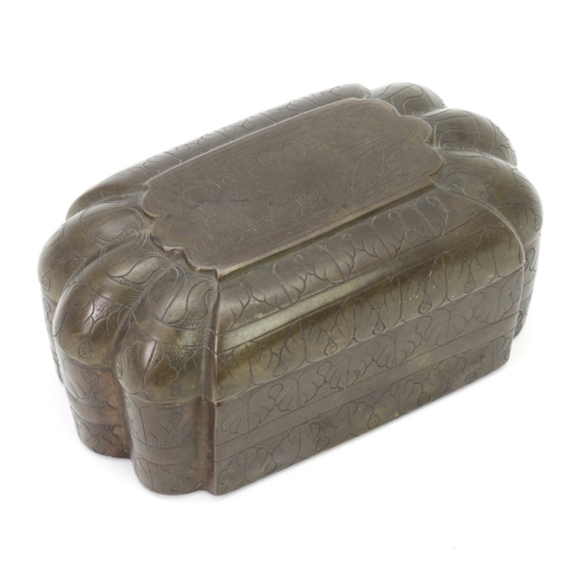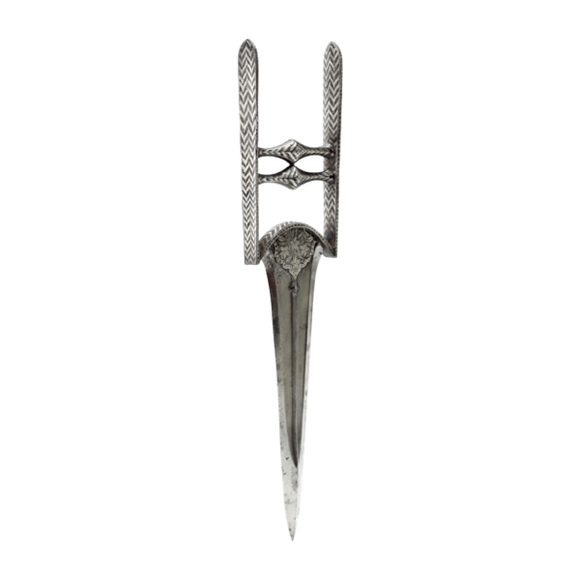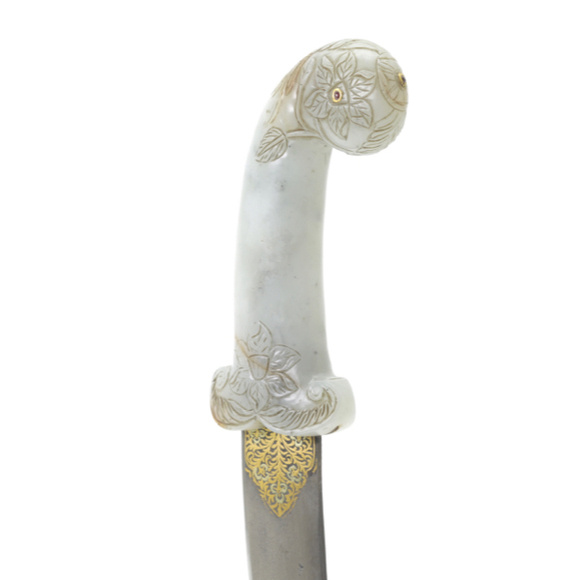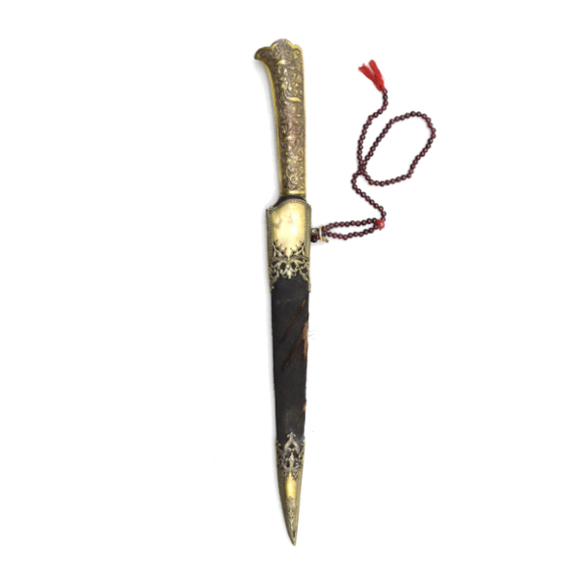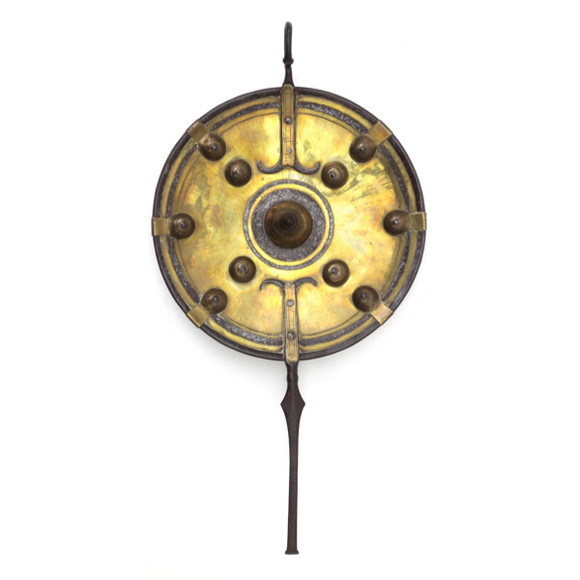Language: Persian
Source: Period account
Description
Hakim shāhī is the name of a specific kind of Indian hilt, commonly used for the talwar sword.
Hakim probably refers to Hakim Khan Sur, a Pashtun warrior who fought the Mughals and died in a battle in 1574.
Shāhī comes from the Persian shāhī (شاهي), meaning "imperial, royal, regal, kingly".
Characteristics
Hakim shāhī hilts have a pronounced V shape where the grip merges into the crossbar:

Two talwar hilts illustrated in Hendley's Damascening on steel or iron as practiced in India. 1892.1
Left: Hakim khāni
Right: Hakim shāhī
It is never explicitly mentioned in the literature, but going by the illustrations in Hendley's work we can gather that the general rule is as follows:
Hakim khāni hilts have a smooth transition between grip section and crossbar.
Hakim shāhī hilts have a pronounced V shape where the grip merges into the crossbar.
Other hilt types
In addition, Hendley makes mention of a karan shāhī hilt.

Karan shahi hilt as illustrated in Hendley's Damascening on steel or iron as practiced in India. 1892.
The karan shāhī style is quite distinct with pointed grip section and wide quillons. As a type, it is associated primarily with the Marwar region in general and Jodhpur in particular.
Hermann Goetz, writing in 1950, sheds some light on the origin of the term:
"The costly damascened swords in pure Mughal taste (figs. 67, 68), were first introduced by Karan Singhjī and, therefore, were termed "Karan Shāhī". 2
Karan Singhjī ruled Bikanēr from 1631 to 1669 under the suzerainty of the Mughals.
Notes
1. Thomas Holbein Hendley; Damascening on steel or iron as practiced in India. W. Griggs & Sons, Ltd. London 1892.
2. Hermann Goetz; The Art and Architecture of Bikaner State. Bruno Cassirer, Oxford. 1950. Page 124 - 125

